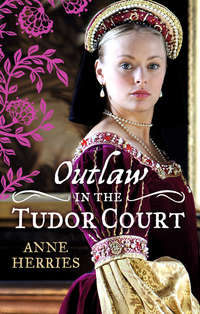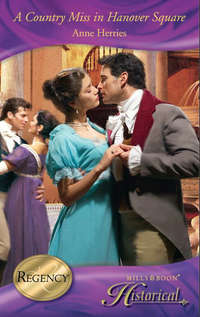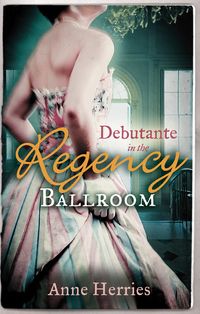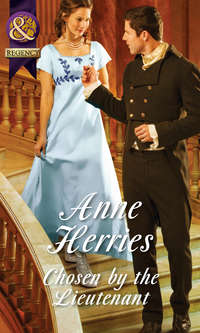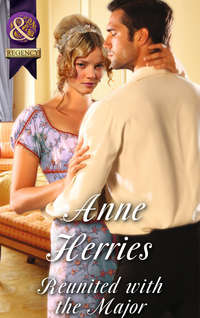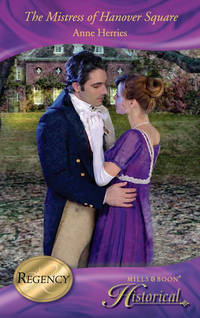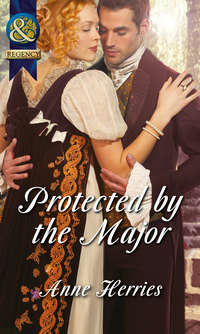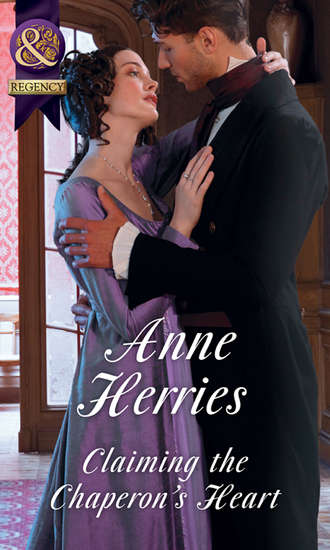
Полная версия
Claiming The Chaperon's Heart
‘So I did,’ Jane replied. ‘Melia is trying on some gowns that were delivered this morning, but I will send for her in a moment. When we have established why it is so very urgent that you see both of us.’
‘I merely wished to make her acquaintance,’ he said, looking as if the wind had been taken out of his sails. ‘Without my consent or knowledge, her father made both Amelia and Elizabeth my wards. The elder girl is married but I thought...’ He paused, as though he was not sure what he wanted to say. ‘It was never my wish that they should be turned from their home and I wanted to make sure that they—Miss Amelia in particular—had all she needed for her comfort and happiness...’
‘Ah, then we are in agreement,’ Jane said and smiled at him. He stared at her as though he did not quite know what had hit him. ‘Melia is my friend and—although it is not certain, she may one day be my sister. I believe my brother is fond of her and, if they find they suit, he intends to make her an offer of marriage....’
‘Indeed...’ Lord Frant went on staring at her. She thought he looked shocked and felt quite sorry for him. Jane suspected that he had come spoiling for a fight, and something—she had no idea what—had pricked the bubble of anger, leaving him drained like an empty balloon. ‘I am glad to hear she has prospects. It was—and still is—my intention to settle five thousand pounds on her. I intend to do the same for her sister. Ten thousand pounds is more or less the sum I shall receive once I sell the Bellingham estate, and I have no wish to profit from any of it.’
‘It is your intention to sell then?’ Jane appraised him with her clear eyes. ‘I had thought perhaps you had come home to live?’
‘Yes, perhaps I have,’ he said, seeming to come back to himself all at once. He smiled and she saw that his mouth was soft and sensual, not at all hard or harsh as she’d first thought. ‘I have not decided; it will depend on various things...’
‘Well, I see we have reached a happy agreement,’ Jane said, realising she had quite misjudged him. ‘I shall send Melia down to you so that you may talk in private.’
‘Oh, no,’ he said quickly. ‘Pray send your servant to fetch her, ma’am. There is nothing I wish to say that you may not hear...’
Chapter Four
‘We have an engagement for the theatre tomorrow evening,’ Paul told Adam when they met at the boxing club that afternoon. ‘Please keep the evening free, dear fellow. I want you to escort my ward, while I entertain her chaperon.’
‘Do you mean Lady Moira?’ Adam asked, reluctant, for he had not liked the lady Paul had chosen for the task when she called at the house.
‘Oh, no, that is all changed,’ Paul informed him in a blithe tone that made him arch his brows. ‘Lady March will be accompanying us. Melia is happy with her and there seems no point in taking her away from where she is settled. Besides, it was all arranged on the spur of the moment. I did ask Viscount Salisbury—Lady March’s brother—to accompany us, but he was engaged to play cards that evening.’
‘So you thought I would oblige?’ Adam gave him a clear look. ‘I suppose Miss Bellingham looks like a horse?’
Paul gave a shout of laughter. ‘I think her quite pretty. Of course she cannot hold a candle to Lady March... She is lovely, Adam. Truly lovely...’
‘Good grief, if I did not know better I would think you smitten,’ Adam said and his eyebrows rose higher as he saw the expression on Paul’s face. ‘Are you? Is she more beautiful than Annamarie?’
‘Completely different and utterly wonderful...’ Paul shook his head as he saw the astonishment in his friend’s eyes. ‘Yes, you may stare. Such a letter she wrote me! I thought she must be some old trout and went there prepared to put her down—but one look from those eyes and I was floored. I just stood there and couldn’t speak for some minutes. I have never experienced anything like it, my dear fellow. She took my breath away when she smiled.’
‘You have got it bad,’ Adam said drily, still hardly believing that he was hearing those words from Paul’s mouth. ‘In India you could have had any woman you wanted...including the daughter of an earl, but you barely spared any of them a look.’
‘Wait until you see her,’ Paul said. He grinned at his friend. ‘If you value your life, please do not fall in love with her. She’s mine...’
‘Prepared to fight to the death for her, are you?’ Adam teased, thinking he was merely jesting, and then caught his breath as he saw the answer in Paul’s face. ‘What is so special about Lady March?’
Paul stared at him for a full minute in silence and then shook his head. ‘I’m damned if I know, Adam. She is beautiful, but it isn’t that...the laughter in her eyes, perhaps, and yet it isn’t just that. To be honest, I have no idea why I feel this way; it just came out of the blue. I was angry, prepared to come the injured party and demand my rights, but then...it was just so sudden. One minute I wanted to strangle her, and the next it took me all my resolve not to take her in my arms and kiss her until she surrendered.’
‘I should not advise that you do any such thing,’ Adam warned. ‘I met her brother this morning at my club and he told me that Jane is still grieving for her husband. He has only been dead just over two years.’
‘Jane...her name is Jane? Sweet Jane, my love,’ Paul said and sighed. ‘Yes, I was told she was recently a widow but I didn’t realise...I thought her older. She is the woman for me. If she will not have me then I shall never marry.’
‘Nonsense,’ Adam chided. ‘You do not know her yet. Supposing she turns out to have a vicious temper and a sharp tongue?’
Paul looked rueful. ‘She may have, for all I know. She certainly wrote me a cool letter but perhaps I deserved it, for mine to her was curt and I was angry when I left the viscount’s house.’
‘Be careful, my friend. You do not know this lady yet. Take your time, for if you plunge straight in one of two things will happen...’ Paul looked enquiring and he smiled. ‘Either she is on the catch for a husband and she will take you for your money—or she truly loved her husband and will break your heart by turning you down instantly.’
‘I do not think there is a lack of money there,’ Paul said. ‘Nor do I think she is on the catch for a husband—but she would very likely turn me down flat. No, you are right, Adam. I must play a long game—but I could not help sharing my feelings with you. You are the only other person I care for in the world. Had I had you for a brother I should have counted myself fortunate.’
‘Speaking of brothers, have you heard from that lad—your stepbrother?’
‘Mark? No, I have not and I do not expect to. He must be at Harrow or Eton by now—and I heard that his mother had remarried to a rich man. I believe she thought my father wealthy and must have been disappointed when she discovered that he was far from it, and a gambler to boot. He would have spent all she had, I dare say, leaving her only with her widow’s settlement.’
‘You are not thinking of settling money on her, I hope?’
‘Certainly not,’ Paul said and his expression hardened. ‘She and her brat may go to the devil for all I care. She was already carrying her son when they married. I believe the affair had gone on for a while before my mother died of a broken heart.’
‘Well, I am glad of your decision,’ Adam said frankly. ‘You have one weakness—a soft heart for those in trouble. Do not let your family take advantage of you—and make certain this widow is what you think her before you offer marriage.’
‘I would go down on bended knee and beg her to marry me today if I thought she would say yes,’ Paul told him and smiled wryly. ‘Do not worry, my friend. I shall exercise all the caution you advise in other matters—but where Jane is concerned...’
Adam shook his head and gave up, grinning from ear to ear. ‘I never thought to hear those words from your lips, but if you feel that way, Paul, I can only wish you joy.’
‘Save your good wishes until she takes me,’ Paul said. ‘You will come to the theatre?’
‘Wild horses would not keep me away now,’ Adam replied with a twist of his mouth. ‘I am curious about Miss Bellingham—and even more interested in meeting Lady March...’
* * *
‘I wish you had not agreed to go to the theatre with that fellow,’ Will said to his sister that afternoon at tea. ‘I would not have minded if I could accompany you—but we hardly know him, and I do not trust him near Melia...’
‘I believe him to be a gentleman.’ Jane smiled and placed a gentle hand on his arm. ‘Do not concern yourself, dearest. Lord Frant has no interest in Melia other than as his ward. I think he found the whole business troublesome and was glad to leave her in my care once he understood that we were respectable. He is to settle five thousand on her, which is a decent sum. Not that you care one iota for a dowry, but others might.’
‘It does not matter what others think,’ Will said loftily. ‘Melia is already sure of her future...should she wish it.’
Jane looked at him intently. ‘Melia is very young, my love. I think her sweet and gentle and I am sure she would make you happy—but you must not be too certain of her yet. Bringing her to London may not prove to have the result you hoped for.’
‘You think she might fall in love with someone else?’
Will looked so hurt that Jane felt terrible. Yet she had to make him aware of what she sensed. They had only been in company twice so far, but on both occasions Melia had been introduced to attractive, wealthy men, and she’d shown her pleasure in the attention paid her.
‘I do not know, my love. I only felt that you should be a little wary. Melia has not given you her promise—has she?’
‘No, but she knows how I feel. I spoke frankly the last time I visited near her home. She said that she needed to know me better and that’s when the visit to London was first discussed...’
‘Yes, I see.’ Jane was thoughtful. If Melia had been a schemer she might have suspected her brother had been used, but she did not think it. Perhaps not always truthful, and sometimes careless of others’ feelings, Melia might hurt Will but not intentionally. She liked him, considered him her friend and thought that she might like to marry him, but that did not mean she’d given her heart and, until she did, she might well bestow it on another. Jane hoped she would not, but Melia had to have her season; she had to have her chance, because otherwise she might do something regrettable after marriage. She was a girl who liked excitement and adventure, and Will preferred a quiet life in the country. Melia would have to be very certain that she loved him to settle for that life.
‘Well, time will tell,’ she said now and smiled lovingly at her brother. ‘Things happen and people change...but I should not worry about us attending the theatre with Lord Frant. I do not believe you have anything to fear from him.’
In that much Jane was right, but if she wanted to safeguard her brother’s interests she should have refused the invitation until Will could go with them, but perhaps even that would not have made much difference.
* * *
Melia was not sure how she felt about going to the theatre with Lord Frant. He had been kind to her, and she was grateful for the five thousand pounds he was settling on her through the family lawyer. Yet she thought him stern and was a little in awe of him, though her dear Jane seemed to like him and that must mean he was all right. However, the moment he introduced his friend, Captain, Viscount Hargreaves, Melia began to enjoy the evening.
His smile made her heart race and she thought him the most handsome man she had ever seen. Indeed, he resembled the pictures of Greek gods she’d once seen in an art book in her father’s library, but was so much more impressive in the flesh. Not that she could see any flesh other than his hands and face—but after seeing that picture she could imagine what he might look like stripped to the waist.
How immodest she was! Her imagination did not go further than his waist, though his long legs looked powerful and strong in pale pantaloons and she thought would show to even more advantage in riding breeches.
She lamented that she had no horse in London, not realising that she had done so aloud until he at once insisted that he would hire her a good ladies’ horse and take her riding in the park.
‘Would you really?’ Melia asked and fluttered her lashes at him. ‘I have a darling mare at home. She has the softest mouth and has spirit, but is a gentle soul as a rule and would never dream of tipping me off.’
‘I shall bring you a creature to rival your darling,’ Adam ventured, vowing privately that he would buy such a horse if none suitable were to be hired. ‘I promise you will not be disappointed. I am said to be a judge. Even Frant takes my advice on horses, though he is a marvellous judge and rider himself. We have been talking of setting up our racing stables together.’
‘So Lord Frant intends to remain in England?’
‘Yes, I think he does,’ Adam said with a small smile and for a moment his eyes seemed to dwell on Lady March and his friend. ‘Though we may keep our horses in Ireland and train them there...’
‘Papa told me that the best horses came from Ireland...’
‘Well, perhaps,’ Adam agreed, ‘but I like Spanish myself. Spanish bred and trained in Ireland—a winning combination...’
‘How clever you are,’ Melia said, gazing up at him. Her fingers fluttered on his arm and she felt almost faint when he smiled down at her. ‘Do you intend to stay in England, Captain?’
‘I dare say I shall divide my time between London and Ireland,’ he told her. ‘We shall race the horses here, you see—but I must visit them often. However, I prefer to live in London. It is the heart of things...but I do not mind travelling. I have had adventures enough for any man, and must find a good house where a sensible woman could be happy. I think my wife must love London, as I do, but be prepared to visit Ireland and other parts with me from time to time.’
‘Oh, yes, she would surely wish to do that,’ Melia said, quite carried away by such an enticing picture. ‘To live in London for most of one’s life must be heaven...though it is pleasant to walk in the country when the weather is good.’
‘Yes, exactly,’ Adam said and smiled again. ‘I think we are to see a good play this evening. It is a comedy, I believe, and then we shall be entertained by a dancer. I am led to understand that she is wonderful to behold but I shall reserve judgement. I have seen a great deal of dancing in India.’
‘Oh, yes, how exciting that must have been,’ Melia said and her fingers curled about his arm. ‘You must tell me all about it.’
‘Not this evening for we must be quiet now the lights are going down,’ he whispered, ‘but perhaps I can take you driving in the park in the morning...’
She indicated that she would love that above all things and then was silent for the play had begun and Melia, like everyone else, was soon laughing at the scandalous romp Mr Sheridan had written for their amusement. Melia knew that it had first been acted upon the stage in 1777 and was much admired, but she had not expected to be so amused by the intrigues unravelling upon the stage.
When, after the performance, she and Lady March were taken for a light supper consisting mainly of ices, sweet trifles and jellies for the ladies, and bread, cold meat and cheese for the gentlemen, accompanied by wine or a cool, crisp sweet cider.
Later, after they had been escorted home in Lord Frant’s very comfortable carriage, the gentlemen had said their goodbyes and they were about to depart to their own rooms, Melia asked Jane what she had thought to the play.
‘Very amusing,’ Jane said. ‘I had seen it years ago when my mama took me, but I believe I appreciated it more this time.’
‘Some of it went over my head, I must admit,’ Melia said, ‘but Viscount Hargreaves explained it all to me.’
‘How very kind of him,’ Jane said and hid her amusement, for only a very innocent mind would need to have the play explained and she did not think Melia that innocent and she certainly was not stupid, and so it seemed she had enjoyed having it all explained to her. Perhaps for the purpose of inviting the viscount’s whole attention? ‘I am glad that you enjoyed your evening, my dear.’
‘Oh, yes, very much,’ Melia replied, a small satisfied smile on her lips.
They parted, each to their own rooms—Melia to dream of a handsome face and a young god coming down from the heavens to bear her off with him to celestial heights, and Jane to wonder if she’d served her brother a bad turn by accepting what she’d imagined a harmless invitation to the theatre.
For her it had been a pleasure. Paul Frant was an attentive host, making sure that the ladies were served with cooling drinks between the acts of the play, and taking them to a very pleasant supper in a private booth afterwards. Enjoying herself more than she had for some time, Jane had not become aware of the way Melia was flirting with Viscount Hargreaves until halfway through supper. She’d wondered then how long it had been going on—the little intimate smiles, the light touches on his arm and that ingenuous way of looking up as if in awe of his superior intelligence.
It was what every young lady on the catch for a husband learned to do, though some did it much better than others. Where some inexperienced young ladies might have seemed coy, Melia played the sweet innocent to perfection. Her aunt must have told her that gentlemen did not care for clever women or some such nonsense. Jane felt such behaviour to be deceitful, especially when the girl in question was perfectly capable of understanding and coping with most situations alone; to pretend misunderstanding or to act as if one were a weak and vulnerable female in need of a gentleman’s strong arm was not something Jane would have resorted to. She believed in calling a spade a spade and taking one’s life in one’s own hands whenever possible, but perhaps some gentlemen did prefer the childish woman that Melia portrayed so well at times.
Knowing how firmly Melia spoke out for her own opinions in the matter of dress or other domestic matters, Jane thought her husband would soon be relieved of any such misapprehension once she was mistress of his home. Melia liked her own way and she’d heard her argue with Will over a horse he’d considered too strong for her to drive when he’d given her lessons in a light phaeton that his sister knew he’d had made especially for her. Will knew her as the wilful and sometimes headstrong girl she was and loved her, but in trying to trap the viscount with a sweet modesty that was not her own Melia was, in Jane’s opinion, behaving badly.
She sighed as she unpinned her hair and her maid brushed it for her, the slightly waving length of it tumbling way past her shoulders. Jane had told Tilda not to sit up but she might as well have saved her breath, for her faithful servant had replied huffily, ‘The day I can’t sit up for you, my lady, you may give me my pension and send me off.’
‘I couldn’t possible manage without you,’ Jane told her affectionately. ‘You will have to go on for many years yet. I’m sorry, Tilda, but you must train a girl to care for me as you do before you think of retiring.’
Tilda had given her a dark look and muttered something that Jane could not hear and diplomatically ignored. The girl had come to her via her mother, a shy young thing of fifteen when she first worked for the family; employed in the nursery, she’d worked her way up to become Jane’s maid, had gone with her to Spain and France when Harry was fighting under Wellington, and been a tower of strength when his death had almost killed Jane. Indeed, she did not know whether she could have borne it without Tilda and some other friends who had supported her in her grief.
After Tilda had wished her pleasant dreams and left her, Jane felt too restless for sleep. She looked at the portrait of her husband that she had kept by her bed since it was first given her as one of many presents from an adoring lover, for Harry had remained the ardent lover to the end. Sighing, she replaced the jewelled trinket in its place and walked to the window to look out at the night sky. Jane’s heart had been broken when she lost the man she loved, and she would not wish such pain on her darling brother. If Melia’s heart had been captured and her head turned by the dashing soldier, she would feel responsible—though, of course, they could have met at any time during the round of parties and dances that were about to begin.
Jane sat on the edge of the bed then lay back against a pile of soft pillows, another sigh escaping her. Was it only Will’s disappointment that hung over her like a heavy cloud—or was there more?
She could not be certain. The evening had been pleasant, much of that deriving from the gentle smile and amusing conversation offered by Lord Frant. There was something about him that had made her very aware of him from their first meeting, but she could not put her feelings into words. He was direct, strong-willed and would make a bad enemy, of that she was sure—but to her he showed only courtesy, though she was certain he’d intended to quarrel with her that first morning.
What had made him change his mind? Jane puzzled over it, but could find no reason for the thunderstruck look on his face as he’d stared at her. A vainer woman might have hit upon the truth, but Jane had never thought herself either beautiful or desirable. She dressed in good clothes that suited her and were considered elegant by others, but, since she only glanced in the mirror when she dressed or changed her clothes, she was not aware that she was a striking woman with good strong features and fine eyes.
It would be vain indeed to imagine that a man like Paul Frant had fallen instantly in love with her and the thought never entered Jane’s mind. He was a man of the world, obviously wealthy and experienced in business matters. She could only think that he’d been surprised—he had mentioned that he’d thought she would be older, so that must be it.
Her own feelings had shocked her, because she’d liked him despite her determination not to. His letter had been abrupt and she’d been ready to think him a villain for turning Melia and her sister from their home, but indeed that had been the lawyers, who had since been put in their place and were now doing all they could to make amends. Paul Frant was a long way from being the most handsome man she’d met; indeed, his friend Adam Hargreaves put him in the shade and was a viscount to boot rather than a mere lord. As a girl, Jane had been expected to look higher and her husband’s title had not been considered one of importance. She’d married for love, with her mother’s approval and her half-brother’s grudging permission, and, until fate had taken everything away, she’d been very happy.
Jane did not feel it would be possible to love like that again. Surely any other attachment she might form would pale into insignificance against the love she’d known—and, that being the case, she’d more or less made up her mind not to marry again. It was better to be a widow and independent rather than find oneself trapped into a less than perfect marriage.
Yet Jane could not deny that it was comfortable having a man to care for one’s comfort, even if one was capable of arranging things for oneself. Will had never interfered in her arrangements, but she’d known he was there if she’d needed a male opinion on any matter of business. Living with her brother had suited her well, but she had her doubts about living in Bath with a female companion.
As yet there had been no reply to her letter to Cousin Sarah, which had surprised Jane a little. She’d thought the girl would be only too happy to accept the offer of becoming her companion. She’d made it clear that, though she would be accepted as family, she would be given an allowance that would make her independent and able to buy the small luxuries of life that made the difference between drudgery and content.
Perhaps the letter had been lost between Sarah’s home and hers. She would wait another week or so and then write again.


